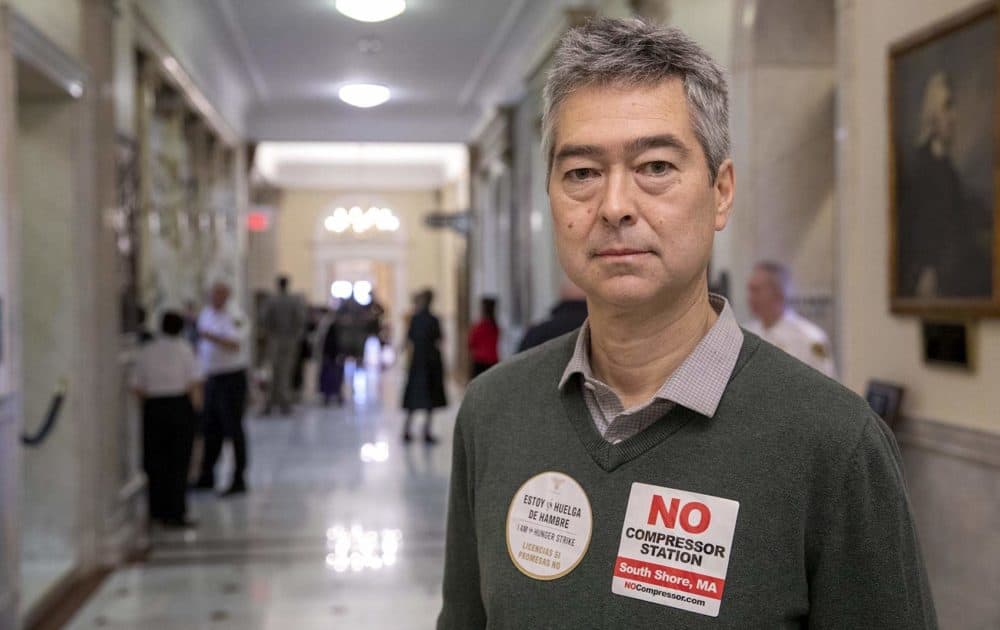Advertisement
'I Feel Victorious': BU Professor Ends Hunger Strike Over Weymouth Compressor

Boston University Professor Nathan Phillips will end the hunger strike he began two weeks ago over what he called "serious public health and safety violations" at the Weymouth natural gas compressor construction site.
"The demands that I had for my hunger strike — we have made some progress," Phillips said at a press conference Tuesday afternoon in Boston. "Yet the reason for my action was to put the spotlight on [environmental justice] and on the officials that are accountable and responsible. I think, and I hope, we’ve reached a tipping point in public awareness."
Phillips, who has been a fierce critic of the compressor station for years, began his hunger strike on Jan. 29 with three demands: That the contractor building the compressor station do more to decontaminate trucks leaving the site with potentially toxic dirt; That the Massachusetts Department of Environmental Protection (DEP) test old burner bricks on the property for asbestos; and that the state install a permanent air monitor near the site.
Of the three, only one has been met, Phillips said; DEP announced last month that it had put a temporary air monitor in place and was planning to install a permanent one in the future.
Phillips and activists with the group Fore River Residents Against the Compressor Station (FRRACS) met with department officials last Friday to discuss, among other things, his remaining two demands. According to Phillips, though, little came from the meeting.
"The urgency is not there. Our state officials are not acting with the urgency that a public health crisis and emergency demands," Phillips said, adding that he hopes for "a massive public uprising" to put more pressure on the state "to stop this toxic compressor station."
A spokesman for Enbridge, the company building the compressor station, wrote in an email that construction crews are following all "proper procedures" and that burner bricks on site have been tested. The project received its final state and federal permits late last year, and construction began in early Dec.
Phillips said the decision to end his hunger strike was not an easy one, but that familial obligations and his personal health have convinced him he must do so.
"I want to live to fight another day," he said, invoking lessons he'd learned from activists in the past who undertook hunger strikes. "And that's maybe the biggest reason I'm going to conclude this hunger strike today. So I can fight for justice with all of you."
